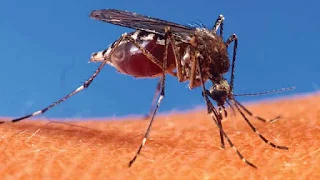An outbreak of Zika fever, which causes microcephaly — a rare birth defect marked by unusually small head size, eye abnormalities and nerve damage — is likely in coming years because of a build-up of favorable environment for the virus, researchers at the All India Institute of Medical Sciences (AIIMS) and Jamia Millia Islamia have cautioned.
The virus will follow a cyclic pattern identical to dengue and chikungunya, which surge every 3-4 years, although the exact cycle in terms of the number of years is still unknown.
Zika virus had become a cause for concern for officials at the Health Department in 2017 so much that in order to avoid panic, they withheld information about the three positive cases reported in Gujarat for four months, until the World Health Organisation (WHO) stated it in its report.
"Dengue, chikungunya, and Zika are all the same vectors and have an identical virus. India, especially Delhi, offers a favorable environment for these vectors.
"Because of the prevalence of Aedes Aegypti mosquito, we are witnessing regular outbreaks of dengue and chikungunya. We should prepare ourselves to face a Zika outbreak as well," said Dr Shama Parveen, assistant professor, Centre for Interdisciplinary Research in Basic Sciences (CIRBSc), Jamia Millia Islamia.
Parveen, with her team, has been trying to identify inhibitors for some specific proteins against the Zika virus. The computational study will take a few years though, she said.
Zika became a worldwide threat in 2015, when babies in Brazil were born with microcephaly. WHO had then declared it a global health emergency. It is no longer a public emergency, but it needs high vigilance, experts caution.
According to a study published in 2016, the Gujarat cases were not India's first. In 1952, Zika antibodies were found in Indians. Researchers, however, say that its existence may have caused immunity, but due to the nature of the virus, which keeps changing its genome (complete set of genes), immunity becomes obsolete after a certain time-period.
"A positive-strand RNA virus is a very unstable molecule. Since Zika has RNA as a genetic material, every time it replicates, the genome changes. This makes it a very difficult virus to produce a vaccine for," said Dr Muneeb Faiq, Clinical Researcher, AIIMS.
"Since we have been seeing dengue and chikungunya outbreaks, we anticipate a Zika outbreak in the near future. The mechanism of this spread will be similar to other vectors," said Faiq.
IT MAY COME BACK STRONGER
In an interview with New York Times, Duane J Gubler, an expert in mosquito-borne diseases at the Duke-NUS Medical School in Singapore and one of the authors of the 2016 study, had said India "needs to be concerned" about the Zika virus because it may have picked up genetic changes over the years and that could make it more dangerous than in the past.
Source-India Today



